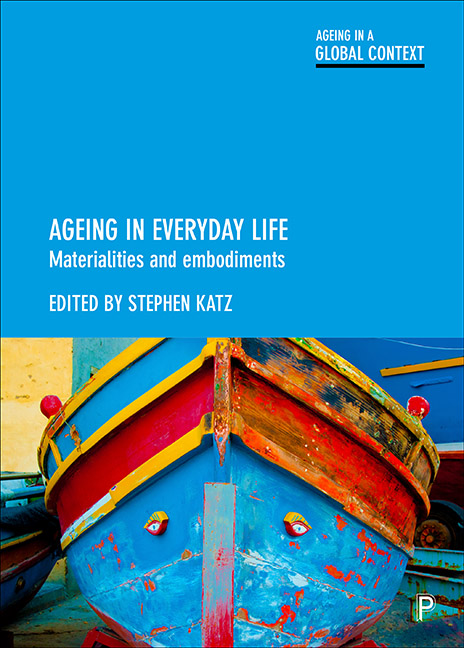Nine - Dancing with dementia: citizenship, embodiment and everyday life in the context of long-term care
Published online by Cambridge University Press: 22 April 2022
Summary
Introduction
This chapter offers a critical understanding of the use of dance as an arts-based approach whose creative-expressive power draws on the body's capacity for innovative action. Most importantly, dance, as a practice and field of study, embraces non-verbal communication, intersubjectivity, affect and embodied or somatic expression (Green, 2007; Rouhiainen, 2008; Eddy, 2009; Mullan, 2014; Ravn, 2017), all of which are essential dimensions of experience and care when it comes to dementia (Kontos et al, 2016, 2017; Miller and Kontos, 2016). Despite these critical points arising from phenomenological and somatic conceptualisations of dance, the mainstream perspective on dance scholarship and practice in dementia care largely represents a contemporary movement towards cognitive science with an emphasis on embodied cognition and psychotherapeutic use of dance (Warburton, 2011). Our argument is distinct from cognitive science, which holds that agency is dependent on cognition – a relationship of dependence that implicitly denies that the body itself, separate and apart from cognition, could be a source of intelligibility, inventiveness and creativity in everyday life. Such a cognitivist perspective on agency has restricted understanding of dance in dementia and thus has limited the development of opportunities to more fully support this embodied form of self-expression in long-term residential care settings.
Rather, we argue for the need to broaden understanding of dance in a way that more fully supports embodied and creative self-expression by persons living with dementia. We further argue for the need to give greater prominence to embodiment while also addressing the ethical imperative to support dance through institutional policies, structures, and practices. To achieve this, we explore how a relational model of citizenship (Kontos et al, 2016, 2017; Miller and Kontos, 2016) brings a new and critical dimension to understanding the importance of dance in the context of dementia. The model is furnished with a human rights ontology that recognises that embodied selfhood and relationality are central to body-self/body-world relations. Embodied selfhood is a theory previously advanced by author Kontos (2004, 2005, 2006a, 2012b), which foregrounds pre-reflective ways of being-in-the-world when examining selfhood. Embodied selfhood highlights our intrinsic corporeality of being-in-the-world, which sustains and animates self-expression – despite even severe dementia – and which is always intertwined with a shared world. In this sense, embodied selfhood is inherently relational.
- Type
- Chapter
- Information
- Ageing in Everyday LifeMaterialities and Embodiments, pp. 163 - 180Publisher: Bristol University PressPrint publication year: 2018



